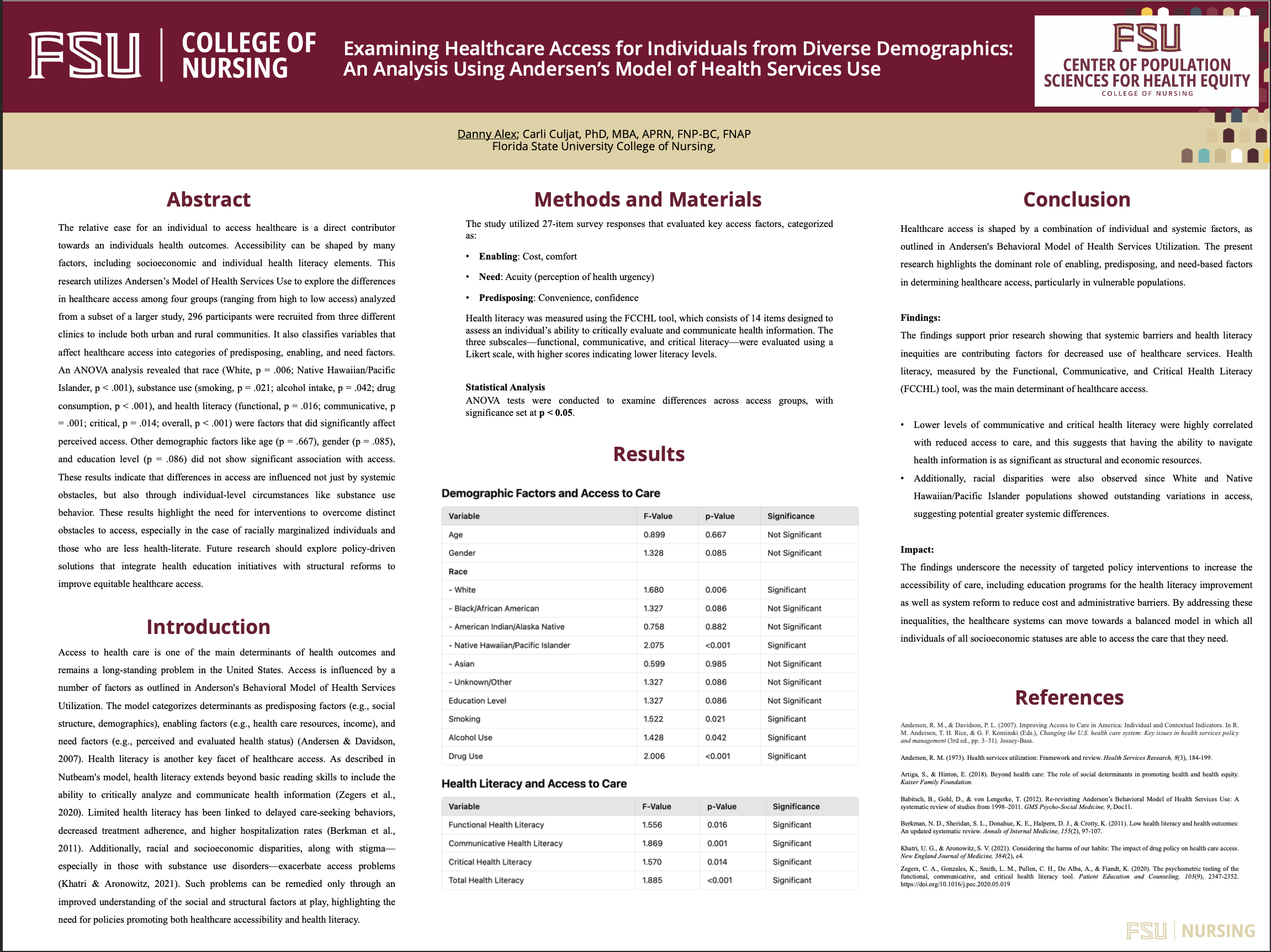Research Symposium
25th annual Undergraduate Research Symposium, April 1, 2025
Danny Alex Poster Session 1: 9:30 am - 10:30 am/ Poster #93

BIO
Danny Alex is a local from Tallahassee, Florida. Danny is enthusiastic about research related to the medical field, as he is on the pre-med track. One day, he hopes to work in healthcare administration to assist in improving the lives of those around him. Danny loves to use his free time to play sports, such as tennis and volleyball, and to spend time with the people he cares about.
Examining Healthcare Access for Individuals from Diverse Demographics: An Analysis Using Andersen’s Model of Health Services Use
Authors: Danny Alex, Carli CuljatStudent Major: Biological Sciences, Public Health
Mentor: Carli Culjat
Mentor's Department: Center of Population Science for Health Equity Mentor's College: College of Nursing Co-Presenters:
Abstract
The relative ease for an individual to access healthcare is a direct contributor towards an individuals health outcomes. Accessibility can be shaped by many factors, including socioeconomic and individual health literacy elements. This research utilizes Andersen’s Model of Health Services Use to explore the differences in healthcare access among four groups (ranging from high to low access) analyzed from a subset of a larger study, 296 participants were recruited from three different clinics to include both urban and rural communities. It also classifies variables that affect healthcare access into categories of predisposing, enabling, and need factors. An ANOVA analysis revealed that race (White, p = .006; Native Hawaiian/Pacific Islander, p < .001), substance use (smoking, p = .021; alcohol intake, p = .042; drug consumption, p < .001), and health literacy (functional, p = .016; communicative, p = .001; critical, p = .014; overall, p < .001) were factors that did significantly affect perceived access. Other demographic factors like age (p = .667), gender (p = .085), and education level (p = .086) did not show significant association with access. These results indicate that differences in access are influenced not just by systemic obstacles, but also through individual-level circumstances like substance use behavior. These results highlight the need for interventions to overcome distinct obstacles to access, especially in the case of racially marginalized individuals and those who are less health-literate. Future research should explore policy-driven solutions that integrate health education initiatives with structural reforms to improve equitable healthcare access.
Keywords: Health Equity

